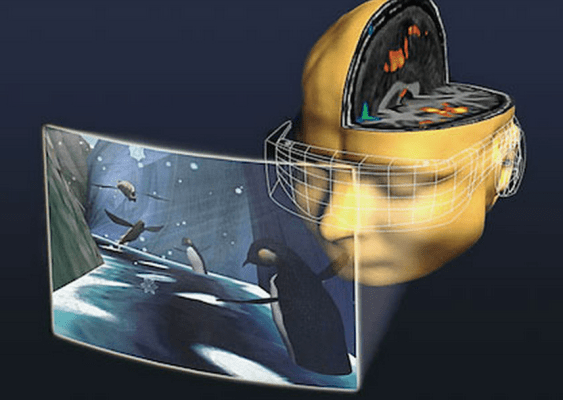VR could enlighten and heal, not just entertain. Its immersiveness could distract us from pain, help us face our phobias, or give us first-hand training. “We have a belief that VR will disrupt every industry. And it’s global. So we made efforts to find companies in every different industry and that are global” Rothenberg Ventures’ founder Mike Rothenberg about the startups selected for his fund’s first virtual reality accelerator class.
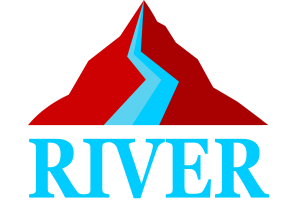 The 13 companies will receive $100,000 investments, three months of office space in San Francisco, mentorship from industry veterans, and access to a broad network of investors, talent, and other VR startup that could be potential partners. After receiving several hundred application, the Rothenberg Ventures River Accelerator is already planning a second class later this year.
The 13 companies will receive $100,000 investments, three months of office space in San Francisco, mentorship from industry veterans, and access to a broad network of investors, talent, and other VR startup that could be potential partners. After receiving several hundred application, the Rothenberg Ventures River Accelerator is already planning a second class later this year.
VR is a fragmented space where it takes a combination of hardware, software, and content to demonstrate technology in any of those disciplines. That’s why getting startups working on the next big computing in one building could be so fruitful.
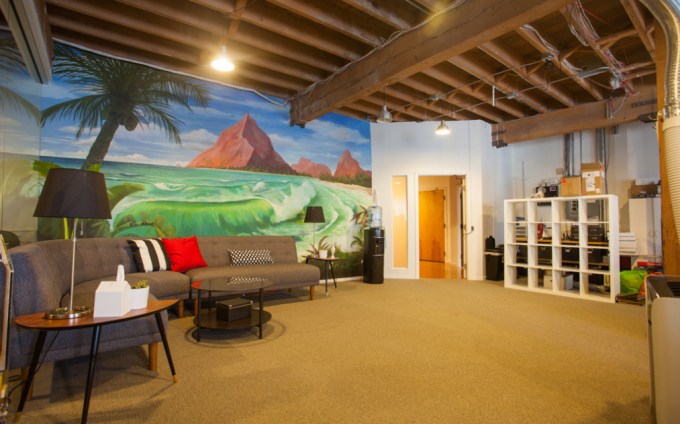
Rothenberg Ventures’ office where the River VR accelerator class will work together
Rothenberg Ventures is only two years old, started by a then-28 year-old Stanford and Harvard Business alum. Yet by focusing on adding value through his young, influential network and helping startups with whatever they need, Mike Rothenberg has scored space in rounds for some of today’s hottest startups.
Rothenberg Ventures received the highest average ranking of any fund by investment analyst Mattermark, topping Union Square Ventures and Andreessen Horowitz. It’s also invested in SpaceX, AngelList, Revel, Patreon, ApartmentList, and Robinhood. But after seeing the ecosystem forming around its VR investments Matterport (3D scanning), Altspace (VR social network, and Merge (affordable foam headset), Rothenberg built an entire VR accelerator.
Here’s a look at the companies joining the first class:
Health
- Psious (Spain)
- Healthcare: A Platform for mental health practitioners to help patients cure fears using immersion therapy in VR. Psious helps people face their fears, from spiders to heights to public speaking.
-
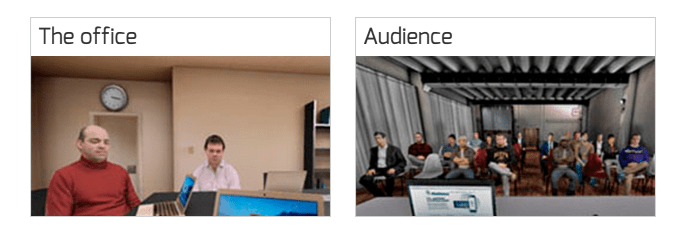
Psious lets people conquer fears like public speaking with its simulators
–
- DeepStream VR (Seattle, WA)
- Healthcare: VR games for pain relief and rehabilitation. DeepStream aids child burn victims by creating a VR “Snow World” (seen up top) they can visit to distract them from pain while having their bandages changed. Users report less pain, and it has potential for everything from childbirth to dentist visits.
Education
-
Education: Platform for education through exploration, discovery and creativity. Solirax wants to replace text books with VR headsets so students can visit historic battlefields or be on stage with world leaders rather than just read about them.–Emblematic Group (Los Angeles, CA)Journalism: Immersive journalism in VR. Emblematic creates VR experiences that help people empathize more vividly than traditional text or video documentaries. I watched its Project Syria experience that puts you in the middle of a street during a bombing in the Middle East, and I immediately felt increased compassion for those living amongst violence.
-
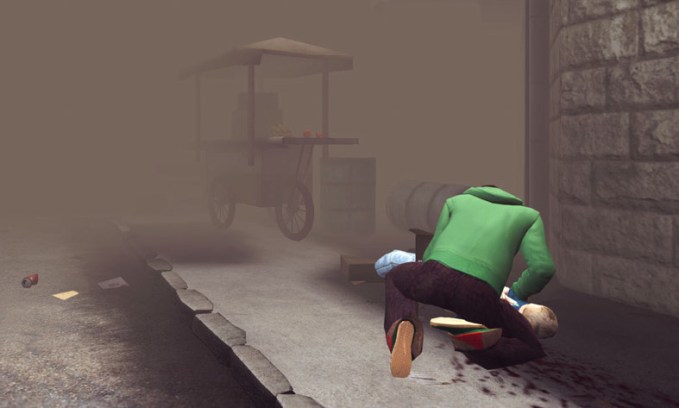
Emblematic’s Project Syria shows you what it’s like to be the victim of a bombing
-
–SDK (South Africa, Botswana, and Cameroon)Training and Travel: Industrial training in VR. A rare bootstrapped VR company, SDK is already making money selling industrial VR training courses that teach workers dangerous trades like mining before they actually are put in harm’s way.–
- Hardware
- Fove (Japan)
Hardware: Eye tracking to control VR. It’s demo shows someone playing the piano with their eyes. This eye-tracking technology could be a fundamental building block for VR interfaces, and an attractive acquisition target for larger companies. - –
Entertainment
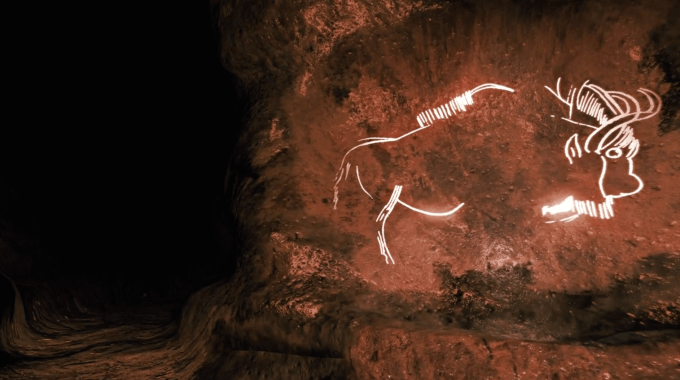
Explore The Cave
Gaming
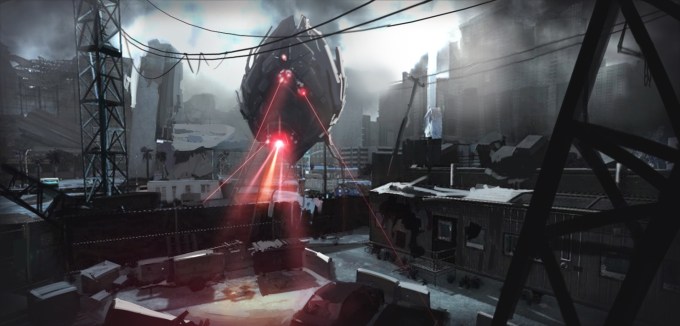
Art from a Thotwise game
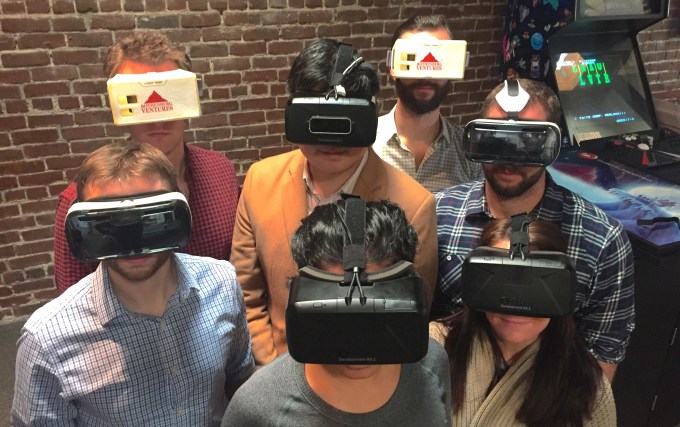

Mike Rothenberg, a true VR geek
“If you can get people to learn faster, better, deeper, that empathy is something they will carry with them forever, and they’ll pay it forward” the boy-faced investor beams. “I think this is the most effective education medium ever created”.
If he seems enthusiastic, you’ve got it right. I saw Rothenberg carry a VR headset around parties and nightclubs at Sundance Film Festival, eagerly sticking it on everyone from movie directors to Lil Jon. He’s the kinda guy who walks around saying things like “With VR, imagination is our only constraint.”
That’s why Rothenberg could win big in virtual reality: it’s an industry of enthusiasts. VR isn’t quite a business yet. It’s inventors and storytellers nerding out on the potential to change the human experience.
It takes a VR geek to find a VR geek.
